- Details
- Category: Senator Robert Peters News
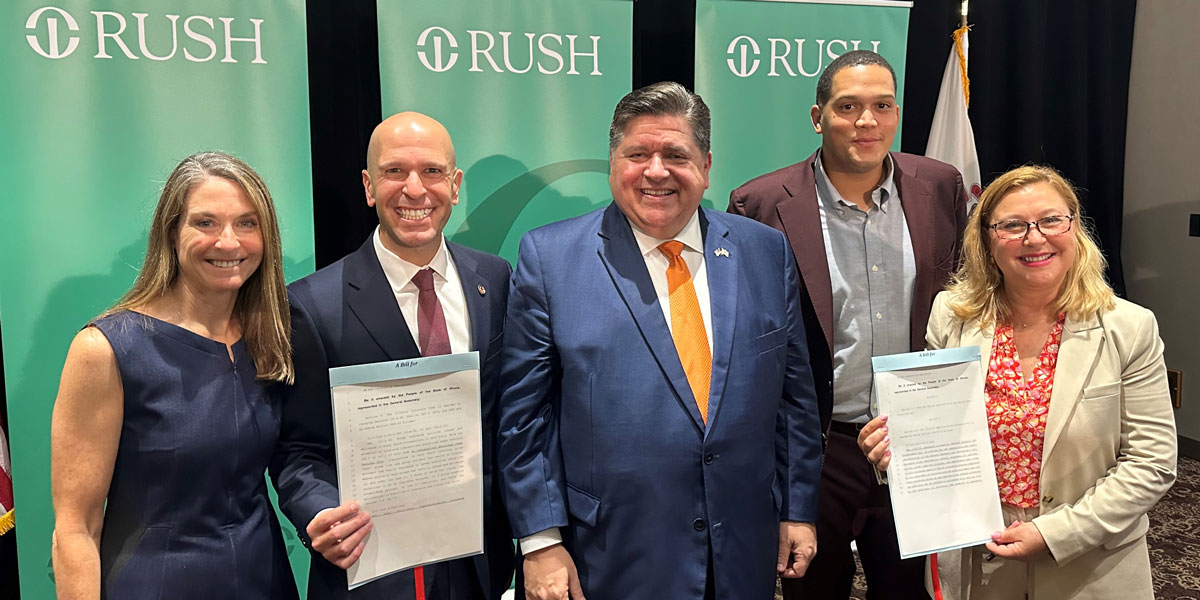
CHICAGO — Today, State Senator Robert Peters (D-Chicago) released the following statement following the signing of his historic legislation – the Healthcare Protection Act – to reform predatory health insurance practices and protect patients:
“Like so many Illinois residents, I know the anxiety and fear that comes with navigating our health care system – especially right now as my wife and I are looking to have children in the near future and exploring fertility treatment options.
“It is hard enough trying to navigate the day in and day out of life – our health care policies and procedures shouldn’t add to that. Insurance is supposed to ease the burden of accessing health care, not create further obstacles.
Read more: Healthcare Protection Act signed into law thanks to Peters
- Details
- Category: Senator Robert Peters News
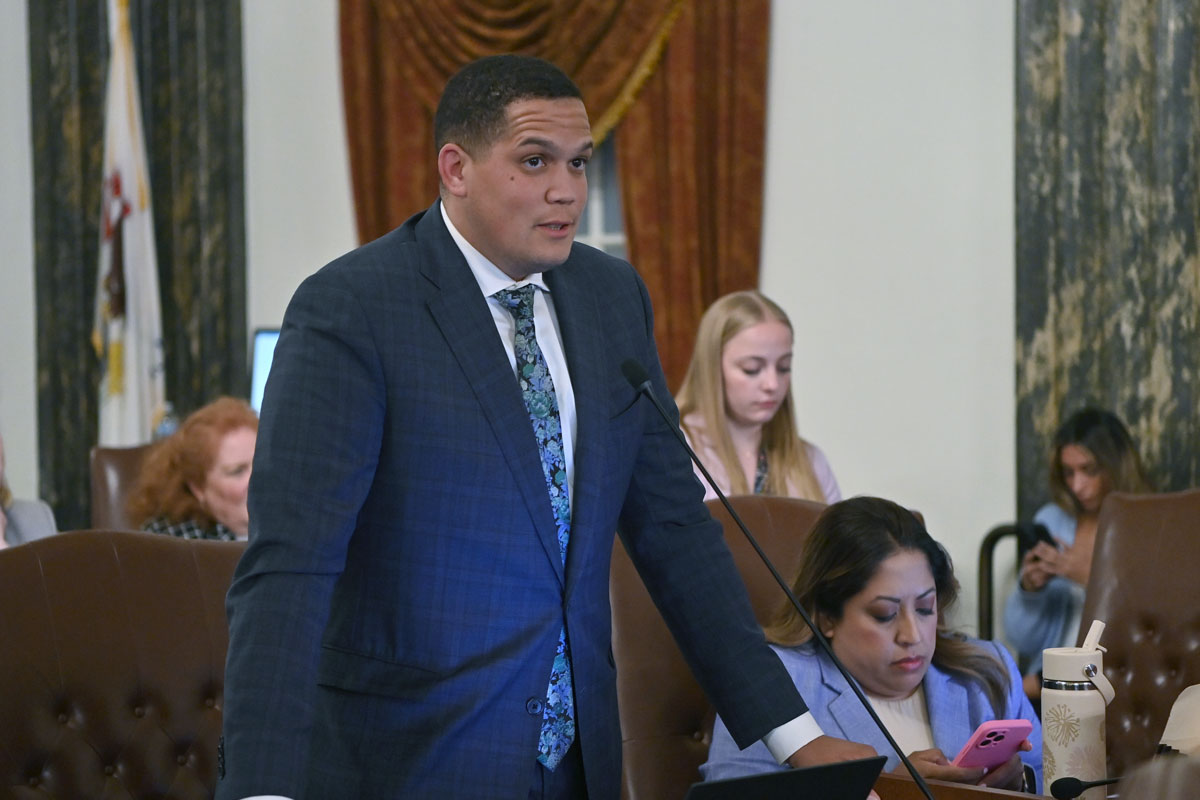 SPRINGFIELD – State Senator Robert Peters released the following statement in response to passage of his Senate Bill 3463 in the House, which will make record expungement a smoother process for youth involved with the juvenile court systems:
SPRINGFIELD – State Senator Robert Peters released the following statement in response to passage of his Senate Bill 3463 in the House, which will make record expungement a smoother process for youth involved with the juvenile court systems:
“We are changing how court systems see young people, helping them get back on track and be a part of the community again.
“Youth involved in the criminal justice system lack consistent legal representation, struggle to navigate legal procedures, and often miss notifications regarding potential expungement opportunities. This initiative prioritizes their rehabilitation and successful reintegration into society.
“Streamlining the expungement process by coordinating it with initial court decisions eliminates unnecessary appearances, enabling more young people to erase their past mistakes and concentrate on building a brighter future.
"I am immensely proud to witness both chambers advance this legislation with bipartisan support, and I look forward to the governor's support by signing Senate Bill 3463 into law.”
- Details
- Category: Senator Robert Peters News
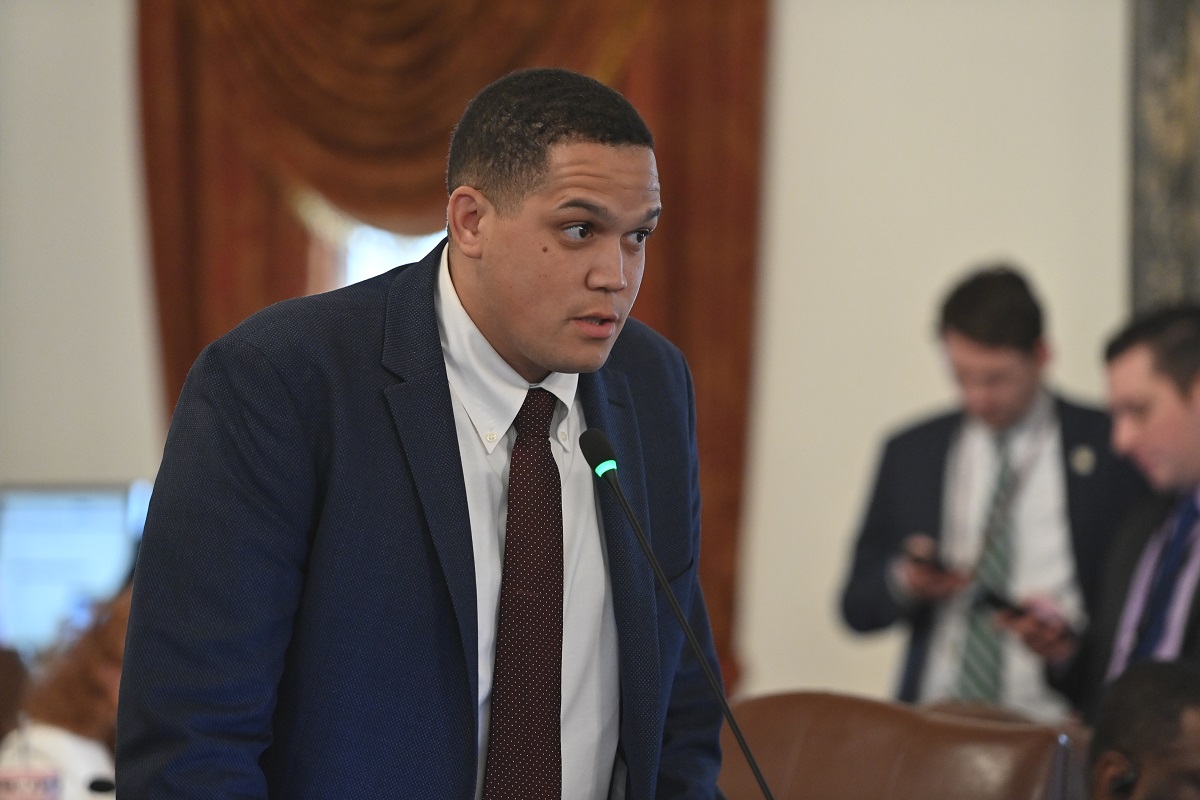 SPRINGFIELD — State Senator Robert Peters advanced legislation to enhance access to health care services and protect the rights and interests of consumers through a comprehensive plan that targets key issues within health insurance plans.
SPRINGFIELD — State Senator Robert Peters advanced legislation to enhance access to health care services and protect the rights and interests of consumers through a comprehensive plan that targets key issues within health insurance plans.
"This legislation makes health care more accessible and transparent," said Peters (D-Chicago). "It also ensures accountability for large insurance companies that have gone unchecked by making certain they receive proper oversight.”
House Bill 5395 addresses "ghost networks," which occur when networks list providers who are not taking new patients, do not accept the patient’s insurance or are retired. Further, it extends the ban on unjustifiable insurance rate increases to large group plans in Illinois, ensuring access to affordable care.
- Details
- Category: Senator Robert Peters News
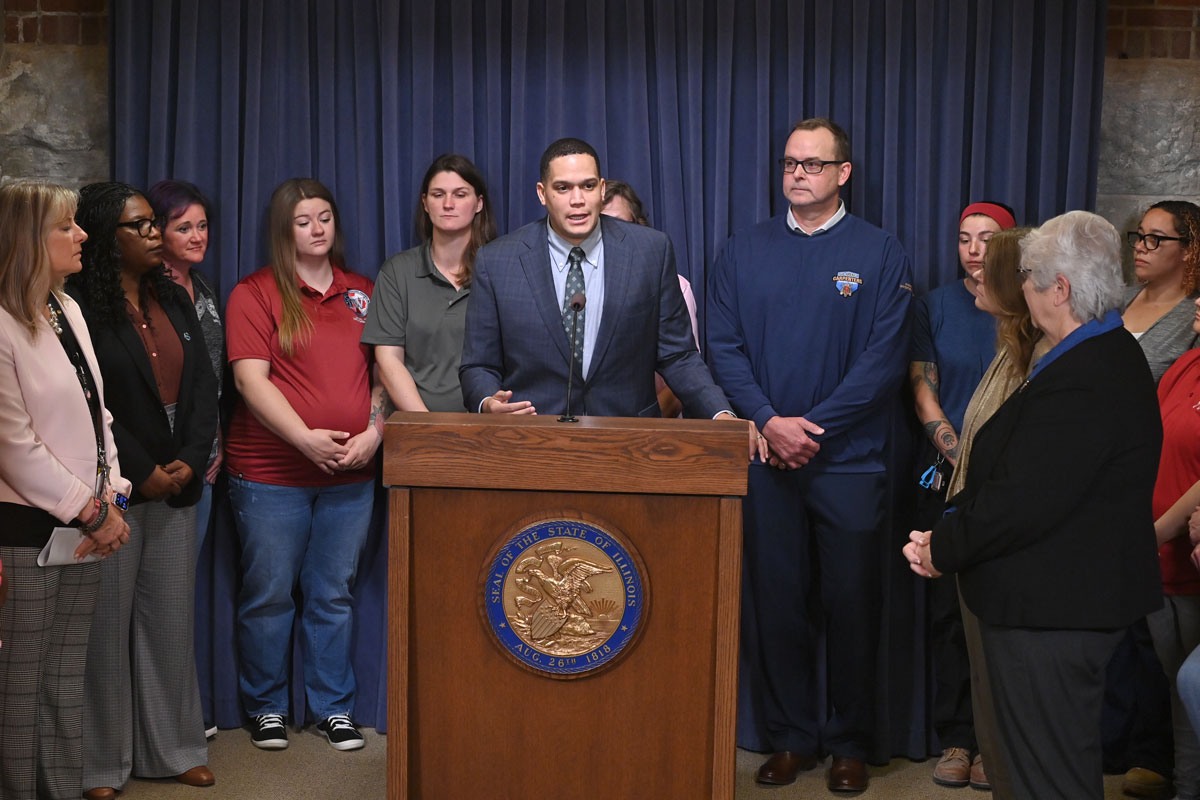 SPRINGFIELD — State Senator Robert Peters joined forces with labor unions on Thursday to celebrate a groundbreaking moment in the state’s capital— the first-ever Tradeswomen Take Over Springfield event.
SPRINGFIELD — State Senator Robert Peters joined forces with labor unions on Thursday to celebrate a groundbreaking moment in the state’s capital— the first-ever Tradeswomen Take Over Springfield event.
"It’s often forgotten that our country has a long history of women in trades, particularly as it relates to the labor movement during World War II," said Peters (D-Chicago), chair of the Senate Labor Committee. "Tradeswomen Take Over Springfield honors that history and connects it to the labor movement today. Women have made invaluable contributions to the labor movement, building a workforce where every individual – regardless of gender, race or background – has the opportunity to pursue a career in trades."
Read more: Peters commemorates historic milestone with first-ever Tradeswomen Take Over Springfield
- Details
- Category: Senator Robert Peters News
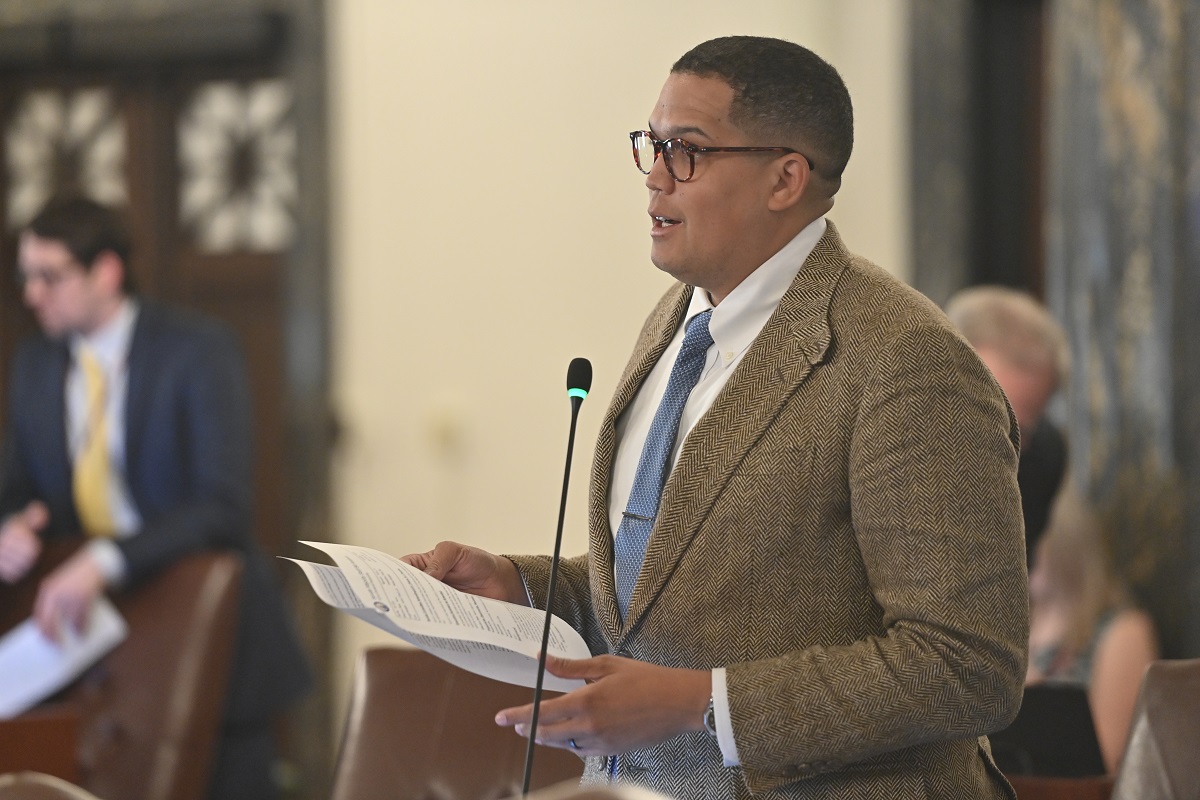 SPRINGFIELD —State Senator Robert Peters advanced legislation out of the Senate Thursday to ban employers from requiring workers to attend meetings regarding political or religious matters.
SPRINGFIELD —State Senator Robert Peters advanced legislation out of the Senate Thursday to ban employers from requiring workers to attend meetings regarding political or religious matters.
“The National Labor Relations Board's top lawyer suggested that mandatory meetings about unions, politics or religion should be illegal under federal labor laws,” said Peters (D-Chicago). “If they are not going to take action, we will.”
The National Labor Relations Board's general counsel issued a memorandum outlining a plan to advocate for mandatory meetings concerning union representation, political opinions and religious matters unlawful under federal labor law. There has been no action following the memorandum, which was issued in 2022.
- Details
- Category: Senator Robert Peters News

SPRINGFIELD — Aimed at helping more survivors of domestic abuse and gender-based violence, State Senator Robert Peters advanced legislation dealing with re-sentencing rules for survivors and options for safe living situations.
“Survivors must have better protections under the law so they can escape dangerous situations,” said Peters (D-Chicago). “Survivors need to feel they can trust our justice system and be empowered to seek safety from abusive situations.”
After the Illinois Supreme Court made a decision in People v. Wells that re-sentencing does not apply to individuals who pled guilty – even if they’re survivors of domestic violence or sexual violence – Peters introduced Senate Bill 3285. The bill lets survivors who took a plea deal ask for lighter sentences or have their charges reversed. The goal is to make things fairer for survivors in the justice system and to push for fewer survivors being locked up because they felt forced to take plea deals.
- Details
- Category: Senator Robert Peters News
 SPRINGFIELD – State Senator Robert Peters is working hard to help more people affected by crime by expanding assistance under the Crime Victims Compensation Program.
SPRINGFIELD – State Senator Robert Peters is working hard to help more people affected by crime by expanding assistance under the Crime Victims Compensation Program.
“We need a more inclusive and comprehensive approach to support people affected by crime on their journey to justice,” said Peters (D-Chicago). “Each person is different and it’s important that our laws take into account the diverse range of experiences and challenges someone may face – especially vulnerable populations, such as immigrants, LGBTQ+ individuals, or those with disabilities, and tailor support services accordingly.”
Read more: Peters proposes improvements to the Crime Victims Compensation Program
- Details
- Category: Senator Robert Peters News
 SPRINGFIELD — In an effort to safeguard the rights of young people, State Senator Robert Peters advanced a measure out of the Senate to update regulations on child labor to shield young individuals from exploitation.
SPRINGFIELD — In an effort to safeguard the rights of young people, State Senator Robert Peters advanced a measure out of the Senate to update regulations on child labor to shield young individuals from exploitation.
“This measure shows we're committed to keeping young people in the workforce safe,” said Peters (D-Chicago). “Protecting youth in work environments gives them the opportunity to learn and grow while contributing positively to the economy without fear of harm.”
Read more: Peters advances measure to update outdated child labor laws
More Articles …
- Peters strengthens child labor laws to protect youth from exploitation
- Peters advances bill to inform domestic violence survivors of housing rights
- Peters advocates to advance the rights of those impacted by domestic violence
- New Year, New Laws: Illinois Legislative Black Caucus Delivers on Key Issues
Page 4 of 23













 © 2026 Illinois Senate Democratic Caucus
© 2026 Illinois Senate Democratic Caucus